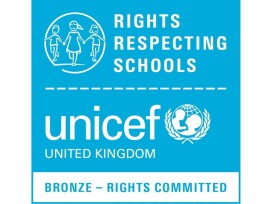Cultural Capital

Cultural Capital
At Barnfields Primary School, we recognise that every child and family who joins our school will have their own unique set of experiences that reflect their family and the culture in which they live. Each child begins school with their own cultural capital and at Barnfields, we strive to build on that.
Cultural capital is the accumulation of knowledge, behaviours, and skills that a child can draw upon which demonstrates their cultural awareness and competence. It is one of the key ingredients that determines their success in society, their career and the world of work. It is a complex theory that comes originally from the field of sociology, which involves the study of society, including relationships, social interactions and culture. It is important to recognise that everyone has cultural capital – knowledge, skills and behaviours – and these accumulate over a lifetime through many different experiences and opportunities.
Ofsted define cultural capital as…
‘…the essential knowledge that pupils need to be educated citizens, introducing them to the best that has been thought and said and helping to engender an appreciation of human creativity and achievement.’ (DfE, 2013)
Our children at Barnfields Primary School benefit from a carefully planned, progressive and coherent curriculum that builds on what they understand and know already. We believe that exposure, not only to culture but also to situations in which the children might not have previous experiences of, is of paramount importance to their ongoing successes. In each subject, we promote cultural capital as well as experiences to enhance these opportunities.
Gradually widening children’s experiences as they progress through school is an important step in providing rich, varied and engaging learning across the curriculum in all year groups. These include visits to places which enhance the children’s cultural capital such as: visits to Stafford Castle, the local farm, Warner Bros. Studio Tour London – The Making of Harry Potter, and The Black Country Museum to name a few. At Barnfields, we seize opportunities possible to increase the cultural capital of our learners enabling them to flourish in society.
Character Education
We believe that character education is the wider personal development of a child beyond the academic education they receive in school. It aims to instil in pupils a number of key characteristics and values such as kindness, resilience, honesty, motivation and humility, all of which will help them be successful, future citizens. At Barnfields Primary School, character education is part of our whole school culture and is shown through our everyday routines, the behaviour of staff and pupils and the teaching and learning in our classrooms. Our character education framework is created through:
- Whole School Culture - At Barnfields there is a strong sense of pride and belonging which has been nurtured through shared values. It is a 'very positive place in which to work and learn'.
- School Behaviour - We promote respect and responsibility of all our school community. Our STEPs to good manners (smile, thank you, excuse me, please) are encouraged in every day interactions.
- Our Curriculum - Our carefully-sequenced, ambitious curriculum has been developed to teach our children the knowledge and cultural capital which provide opportunities for them to flourish as modern British citizens.
- Our co-curriculum - Our inclusive co-curriculum supports our children artistic, creative, sporting, performance and design talents.
- Service to Others - Through our school charity and assemblies, we promote service to others and the value of helping those who need it.
- Promotion of equality and inclusion - All pupils at Barnfields are valued for being 'special and unique'. Reasonable adjustments are always made to enable all pupils to access our curricular and co-curricular offer and differences are celebrated.
Rights Respecting Schools - Bronze

Barnfields Primary School was awarded the Rights Respecting School Bronze Award in 2024. The Bronze award is granted to schools that have shown a commitment to embedding children's rights throughout its policies, practices and ethos. The UNICEF Rights Respecting Schools Award (RRSA) helps schools to use the United Nations Convention on the Rights of the Child (UNCRC) to enhance daily school life and give young people the best chance to lead happy, healthy lives and to be responsible, active citizens.
At Barnfields pupils' rights are pertinent to us and that is why our pupils and teachers have been working in unison to ensure the rights of our young people are recognised, carried out and valued.
You can find more information about Rights Respecting Schools from the Unicef Website.
